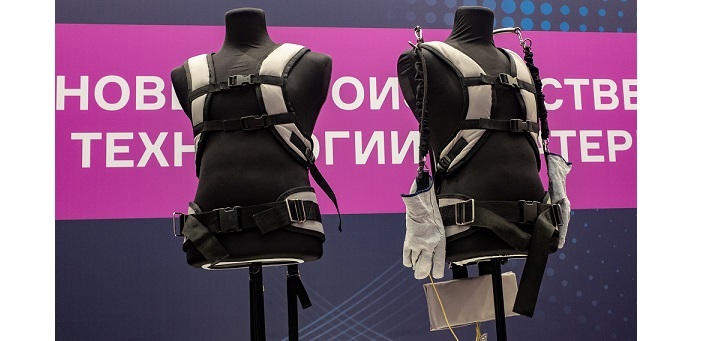
 Data Structure
Data Structure Networking
Networking RDBMS
RDBMS Operating System
Operating System Java
Java MS Excel
MS Excel iOS
iOS HTML
HTML CSS
CSS Android
Android Python
Python C Programming
C Programming C++
C++ C#
C# MongoDB
MongoDB MySQL
MySQL Javascript
Javascript PHP
PHP
- Selected Reading
- UPSC IAS Exams Notes
- Developer's Best Practices
- Questions and Answers
- Effective Resume Writing
- HR Interview Questions
- Computer Glossary
- Who is Who
Cyborgs - Applications and Limitations
Cyborgs - An Insight
With the increasing use of technology and artificial intelligence, the concept of Cyborgs has gained significant attention. Cyborgs, also known as Cyborg Hybrids, are a combination of biological and technological components.
The term 'cyborg' refers to an organism that has both organic and synthetic parts, while 'hybrid' refers to a combination of two different things. Cyborgs are an exciting field of study and have many potential applications, but they also come with their own set of limitations.

Below we have discussed about the applications and limitations of Cyborgs and the ethical implications of this emerging field.
Applications of Cyborgs
A few of the application of Cyborgs are given below -
Medical Applications
One of the most promising applications of Cyborgss is in the field of medicine. Scientists are exploring the use of Cyborgs to create personalized medicine, which could revolutionize the way we treat diseases.
By combining biological and technological components, Cyborgs could be used to create organs that are genetically matched to patients, reducing the risk of organ rejection.

Cyborgs could also be used to create artificial limbs that are controlled by the user's nervous system. This would give amputees greater control and range of motion than current prosthetics. Additionally, Cyborgs could be used to create implants that monitor and regulate bodily functions, such as blood sugar levels in diabetics.
Military Applications
Cyborgs also have potential military applications. By enhancing soldiers with technology, they could become stronger, faster, and more resilient.
For example, Cyborgs could be used to create exoskeletons that enhance a soldier's strength and endurance, allowing them to carry heavier loads and travel longer distances.
Cyborgs could also be used to enhance a soldier's senses, such as vision or hearing, giving them an advantage in combat situations. Additionally, Cyborgs could be used to create drones that are controlled by the human brain, allowing soldiers to conduct surveillance and reconnaissance without putting themselves in harm's way.

Industrial Applications
Cyborgs could also have industrial applications. By enhancing workers with technology, they could become more efficient and productive. For example, Cyborgs could be used to create exoskeletons that reduce the strain on workers' bodies, allowing them to work longer and with less risk of injury.
Cyborgs could also be used to enhance workers' abilities, such as vision or hearing, allowing them to perform tasks that would otherwise be impossible.
Additionally, they could be used to create robots that are controlled by human brains, allowing for more precise control and greater flexibility in manufacturing processes.
Limitations
Ethical Implications
One of the biggest limitations of Cyborgs is the ethical implications of creating hybrid organisms. Many people have ethical concerns about manipulating the natural order of things and worry about the potential consequences of creating new life forms. There is also concern about the potential for Cyborgs to be used for military purposes, which could lead to a new arms race and the development of more dangerous weapons.
Technical Challenges
Another limitation of Cyborgs is the technical challenges of creating and controlling them. They require a complex integration of biological and technological components, which can be difficult to achieve. Additionally, controlling Cyborgs requires a deep understanding of both biology and technology, which is still a relatively new field of study.
Limited Knowledge
There is also a significant amount of unknowns when it comes to Cyborgs. We are still learning about the interactions between biological and technological components, and we do not yet fully understand the implications of creating hybrid organisms. As such, there is a risk of unintended consequences when working with Cyborgs.
Conclusion
Cyborgs are an exciting field of study with many potential applications, particularly in the fields of medicine, military, and industry. However, they also come with their own set of limitations, including ethical concerns, technical challenges, and limited knowledge. It is important that we carefully consider these limitations and weigh the potential benefits against the risks before moving forward with Cyborgs research.
As we continue to explore the possibilities of Cyborgs, it is important that we keep in mind the ethical implications of creating hybrid organisms. We must ask ourselves whether it is right to manipulate the natural order of things and create new life forms. We must also consider the potential consequences of using Cyborgs for military purposes, such as the development of more dangerous weapons.
In addition to the ethical concerns, there are technical challenges that must be addressed in order to make Cyborgs a reality. Scientists must develop a deep understanding of both biology and technology and work to overcome the challenges of integrating these two fields. They must also work to develop the necessary tools and techniques to control and monitor Cyborgs.
Finally, there is still a great deal that we do not know about Cyborgs. We are still learning about the interactions between biological and technological components, and there is a risk of unintended consequences while working.

